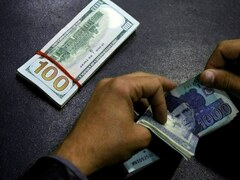SEOUL: South Korea’s antitrust regulator said it would impose a 2.85 billion won ($2.2 million) fine on Tesla Inc for failing to tell its customers about the shorter driving range of its electric vehicles (EVs) in low temperatures.
The Korea Fair Trade Commission (KFTC) said that Tesla had exaggerated the “driving ranges of its cars on a single charge, their fuel cost-effectiveness compared to gasoline vehicles as well as the performance of its Superchargers” on its official local website since August 2019 until recently.
The driving range of the U.S. EV manufacturer’s cars plunge in cold weather by up to 50.5% versus how they are advertised online, the KFTC said in a statement on Tuesday.
Tesla could not be immediately reached for comment.
On its website, Tesla provides winter driving tips, such as pre-conditioning vehicles with external power sources, and using its updated Energy app to monitor energy consumption, but does not mention the loss of driving range in sub-zero temperatures.
In 2021, Citizens United for Consumer Sovereignty, a South Korean consumer group, said the driving range of most EVs drop by up to 40% in cold temperatures when batteries need to be heated, with Tesla suffering the most, citing data from the country’s environment ministry.
Tesla China boss Zhu promoted to global role - company posting
Last year, the KFTC fined German carmaker Mercedes-Benz and its Korean unit 20.2 billion won for false advertising tied to gas emissions of its diesel passenger vehicles.
The challenge for electric vehicle performance in extreme temperatures is widely known, though EVs are popular in markets like Norway, where four out of five vehicles sold last year were battery-powered, led by Tesla.
A 2020 study of 4,200 connected EVs of all makes by Canada-based telematics provider Geotab found that most models had a similar drop in range in cold weather, primarily because the battery is also used to heat the car for the driver and passengers.
At just above 20 degrees Celsius, the average EV outperformed its stated range, but at minus 15 degrees the average EV had only 54% of its rated range, the study found.























Comments
Comments are closed.